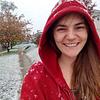Take a photo of a barcode or cover
adventurous
medium-paced
This little adventure has a lot more texture than its short length would imply.
In Planet of Exile, Le Guin presents us with the apparent last days of human colonization of an alien world, one in which the seasons last decades and the native inhabitants are cautious of human beings. Communication between other human beings and the colony had long since ceased, and the population of humans dwindled, while their relations to the natives grew strained and suspicious. Ironically, the natives themselves seem to have more recognizably "human" inner and social lives than the actual humans, because the human colonists are so far advanced as to have psychic powers--they seem remote and magisterial. One of the natives chances upon the chief of the human colony and discovers her latent psychic abilities. After she returns home, the leader of the local native tribe--her father, a colorful character who had previously wed a human woman--learns that before the upcoming winter, barbarian tribes have united and will conquer their winter fortress. They ally with the human colonists to fend off this attack, but their preparation comes too late.
Le Guin never disappoints with her settings: this one contains so many mysteries, only some of which are resolved by the end, and the work is better for it. By leaving us in the dark about the fate of the greater part of humanity, we are put in the same position as the human colonists who lost contact long ago. By telling the story mostly from the point of view of the natives, learning about the human colonists, we both empathize with the colonized people and find out what future humanity is like alongside these temperamental and bad-at-planning aliens. We can see parts of ourselves both in these perfected (super)humans and in the "less developed" native non-humans--perhaps they were meant to represent our ideals and our past coming into contact.
The colonizer-colonized relationship is complicated in this book but never ignored: Le Guin treats it with nuance and consideration, never falling into easy stereotypes like "the primitive natives" and "the civilized humans" even though, at first glance, the two major groups of characters might be seen as falling into those categories. She weaves a tale of survival, frustration, and intrigue that avoids cliche and makes one want to read more pieces set in this fictional universe.
In Planet of Exile, Le Guin presents us with the apparent last days of human colonization of an alien world, one in which the seasons last decades and the native inhabitants are cautious of human beings. Communication between other human beings and the colony had long since ceased, and the population of humans dwindled, while their relations to the natives grew strained and suspicious. Ironically, the natives themselves seem to have more recognizably "human" inner and social lives than the actual humans, because the human colonists are so far advanced as to have psychic powers--they seem remote and magisterial. One of the natives chances upon the chief of the human colony and discovers her latent psychic abilities. After she returns home, the leader of the local native tribe--her father, a colorful character who had previously wed a human woman--learns that before the upcoming winter, barbarian tribes have united and will conquer their winter fortress. They ally with the human colonists to fend off this attack, but their preparation comes too late.
Le Guin never disappoints with her settings: this one contains so many mysteries, only some of which are resolved by the end, and the work is better for it. By leaving us in the dark about the fate of the greater part of humanity, we are put in the same position as the human colonists who lost contact long ago. By telling the story mostly from the point of view of the natives, learning about the human colonists, we both empathize with the colonized people and find out what future humanity is like alongside these temperamental and bad-at-planning aliens. We can see parts of ourselves both in these perfected (super)humans and in the "less developed" native non-humans--perhaps they were meant to represent our ideals and our past coming into contact.
The colonizer-colonized relationship is complicated in this book but never ignored: Le Guin treats it with nuance and consideration, never falling into easy stereotypes like "the primitive natives" and "the civilized humans" even though, at first glance, the two major groups of characters might be seen as falling into those categories. She weaves a tale of survival, frustration, and intrigue that avoids cliche and makes one want to read more pieces set in this fictional universe.
The young woman protagonist in this one is good. She is both gentle and unyielding. There's also some beautiful writing, as usual.
adventurous
mysterious
medium-paced
Plot or Character Driven:
A mix
Strong character development:
Yes
Loveable characters:
Complicated
Diverse cast of characters:
Yes
Flaws of characters a main focus:
No
adventurous
emotional
It’s good but idk it didn’t grab me as much as Rocannon’s world.
This book was much better than the one before - I think that writing about romance and interpersonal relationships is Le Guin’s strength. Our narrator is “Farborn,” meaning that he is descended from the people of the League, who sent a ship to this planet (Werel) years ago to reach the native life forms. However, they left because the Great War began, and they have not sent a ship in many years. Knowledge is limited because it is a League tenet to not progress in their life beyond the technology attained by the native peoples. (A fun callback - it seems when Rocannon inherited mindspeech the power was given to all of his descendants, putting the race of Man among alien telepathic races.) The population of Farborn is shrinking, as the planetary conditions force them into sterility. There are positives: they cannot become sick from the planet’s viruses or infected with its bacteria. Our narrator, Jakob Agat, falls in love with a girl of another species - Rolery; they marry. Agat is a natural leader of his people. Their kind band together (some of them, others war) to fight off another species (Gaals) who are driven by bloodlust and migrate South to avoid the cold. When Farborn begin to get sick and infected in battle, Rolery realizes that she perhaps can bear Jakob’s child. The book ends when the brutal race are driven South by a blizzard, leaving a reduced population of the two species living together in a small city.
adventurous
emotional
hopeful
tense
fast-paced
Plot or Character Driven:
Plot
Strong character development:
Complicated
Loveable characters:
Yes
Diverse cast of characters:
Complicated
Flaws of characters a main focus:
No
It was great, I'm really loving all these Hainish books and the way the universe is being built out of sequence. So far I think my order is: Left Hand of Darkness, The Disposessed, Planet of Exile, Rocannon's World.
adventurous
informative
reflective
medium-paced
Plot or Character Driven:
Plot
Strong character development:
Complicated
Loveable characters:
Complicated
Diverse cast of characters:
Complicated
Flaws of characters a main focus:
Yes
This is probably the most action heavy of any book I've read from Le Guin. I think it's interesting that the Farborn have maintained this feeling of exile for over 600 years, only just now beginning to accept this planet as their home. There's interesting commentary here about cultural assimilation, now that they have banded together and share some of the same vulnerability to infections, Huru expects to lose everything about their own culture. Agat and Rolery's love demonstrates this transition the most, and I'd be really interested to know if they ever have kids.





